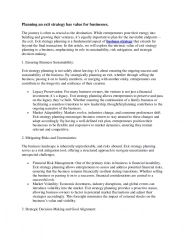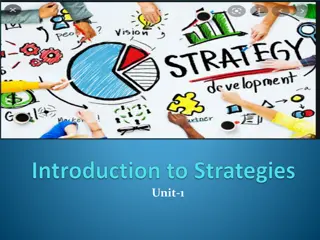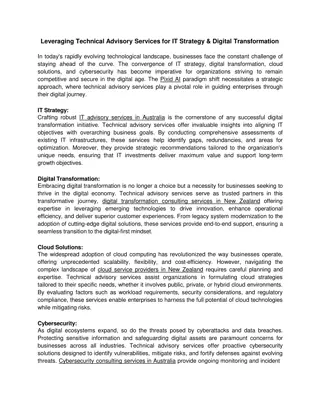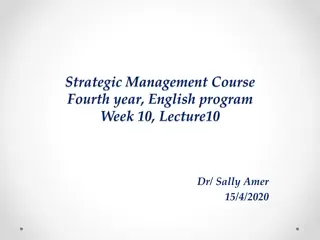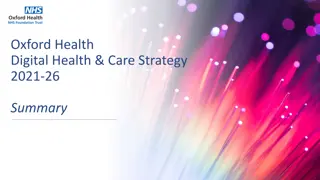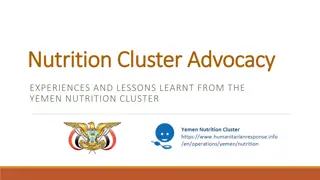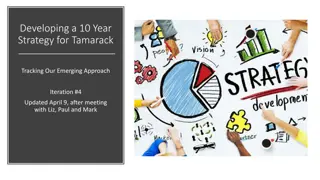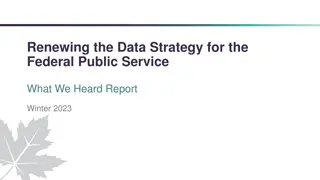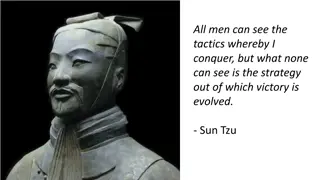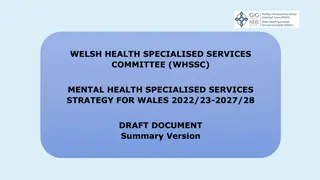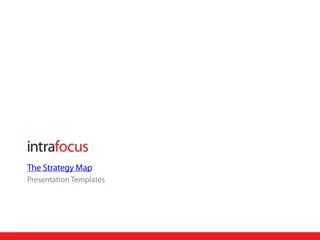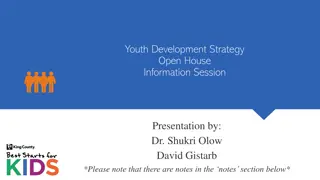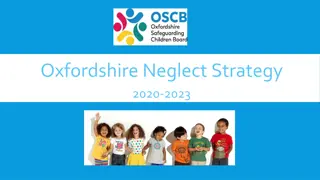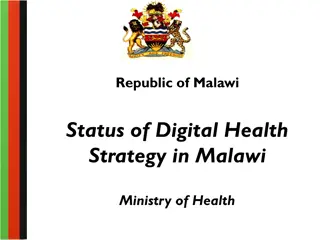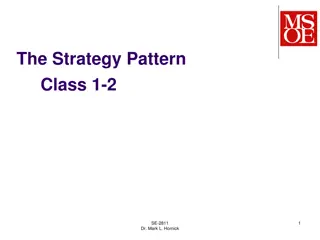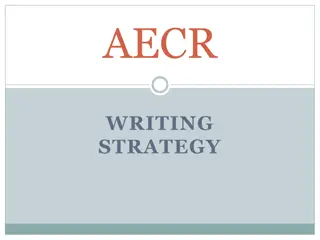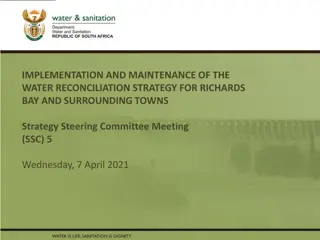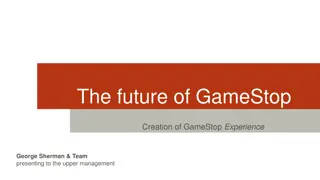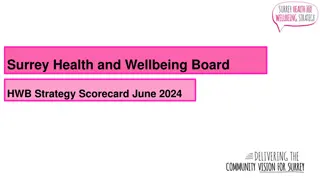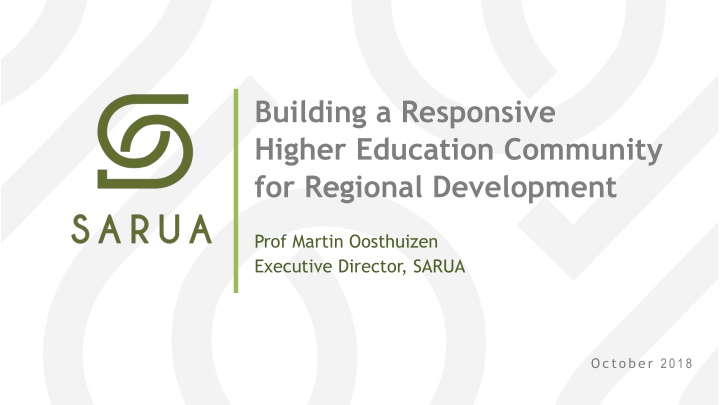
Building a Responsive Higher Education Community for Regional Development by SARUA
"Discover how SARUA, the Southern African Regional Universities Association, leads collaborative efforts among universities in the SADC region to enhance higher education capacity and contribute to socio-economic development and integration. Explore their vision, mission, and strategic priorities for 2017-2021, emphasizing leadership, quality, and technology-enabled innovation. Learn about SARUA's role as a dynamic hub and convenor aligning with the SADC agenda for industrialization and regional development."
Download Presentation

Please find below an Image/Link to download the presentation.
The content on the website is provided AS IS for your information and personal use only. It may not be sold, licensed, or shared on other websites without obtaining consent from the author. If you encounter any issues during the download, it is possible that the publisher has removed the file from their server.
You are allowed to download the files provided on this website for personal or commercial use, subject to the condition that they are used lawfully. All files are the property of their respective owners.
The content on the website is provided AS IS for your information and personal use only. It may not be sold, licensed, or shared on other websites without obtaining consent from the author.
E N D
Presentation Transcript
Building a Responsive Higher Education Community for Regional Development Prof Martin Oosthuizen Executive Director, SARUA October 2018
The Southern African Regional Universities Association (SARUA) is a membership-based association of Vice-Chancellors of public and private universities in the Southern African Development Community (SADC). SARUA enables collaborative networks and partnerships that develop the institutional and human capacity of the region s universities in order to make a distinctive contribution to regional development and integration.
Democratic Republic of the Congo Botswana Mozambique Namibia Angola Mauritius Madagascar Malawi Seychelles Lesotho Zambia South Africa Zimbabwe Tanzania
SARUA Vision & Mission SARUA s vision is to be a dynamic catalyst and responsive hub for higher education revitalisation and innovation in the SADC. SARUA s mission is to build and sustain a vibrant higher education community that makes a distinctive contribution to regional socio-economic development and integration through collaborative networks and partnerships. SARUA contributes to capacity development in higher education in the SADC through a strategic focus leadership and management development, teaching and learning development, quality management and technology-enabled innovation in higher education.
Three Strategic Priority Streams 2017-2021 To maintain a clear focus on capacity development programs directly relevant to the needs of SADC universities along the themes of LEADERSHIP, QUALITY and TECHNOLOGY-ENABLED INNOVATION. To be a responsive connecting hub for universities multiple stakeholder interests as dynamic catalyst for regional higher education initiatives. To implement an operating model for internal sustainability, which demonstrates value for money and contributes new revenue opportunities for members.
A Dynamic Regional Convenor Closer alignment with SADC agenda & structures SADC Industrialization Strategy and Roadmap 2015 2063 o takes a long-term view of regional development o requires concerted effort to ensure that higher education as a sector is responsive to the region s needs in terms of skills, qualifications, research and innovation, and the creation of an integrated post-secondary system o As well as - SADC Protocol on Education and Training; and the Regional Indicative Strategic Development Plan (2015 2020) Regional Qualifications Framework; Credit Recognition, R&I; Women in SET; Focus Area Programmes Member states are jointly pursuing regional strategies with the long-term vision of driving industrialisation in Southern Africa.
A Dynamic Regional Convenor Closer alignment with SADC agenda & structures June 2017 Meeting of SADC Ministers responsible for Education and Training and Science, Technology and Innovation o Confirmed the importance of SARUA in alignment with agreed SADC priorities in addressing regional industrialisation, harmonisation of higher education in the region o Agreed that the process of alignment should continue (Meeting Report 5.6) integration relation and to in
A Dynamic Regional Convenor Closer alignment with SADC agenda & structures As regional convenor of higher education interests, SARUA has initiated a process of closer alignment between the SADC and SARUA to ensure that universities become active contributors to the implementation of SADC strategies as knowledge producers and developers of human capacity and to build institutional capacities in the process. o o The process of SADC engagement is ongoing: SARUA participates in meetings of the SADC Technical Committees on Higher Education and Training, Research and Development and Certification and Accreditation SARUA intends to obtain endorsement from the SADC Secretariat as the recognised custodian of the regional database for the profile of the HE system in the SADC
A Responsive, Connecting Regional Hub Strategic partners and collaborative agreements SARUA continues to work closely through partnerships and collaborative agreements to implement programmes which would benefit the region in line with the UN Sustainable Development Goals and the African 2063 goals ( The Africa we Want ) including: o International Association of Universities o UNESCO Regional Office for Southern Africa (ROSA) o African Association of Universities o SAQAN(Southern African Quality Assurance Network) o European Commission o UbuntuNet o German Academic Exchange Service (DAAD) o USAf
Three Strategic Priority Streams 2017-2021 To maintain a clear focus on capacity development programs directly relevant to the needs of SADC universities along the themes of LEADERSHIP, QUALITY and TECHNOLOGY-ENABLED INNOVATION. To be a responsive connecting hub for universities multiple stakeholder interests as dynamic catalyst for regional higher education initiatives. To implement an operating model for internal sustainability, which demonstrates value for money and contributes new revenue opportunities for members.
SARUA Strategic Focus Areas in support of national and regional development Strategic focus areas 1. Leadership and Management development Strategic enabler Profile of HE Landscape in the SADC Region 2. Learning and Teaching Development baseline to support the four strategic focus areas (but also to support policy makers, planners, HE researches, institutions) Curriculum Innovation and Responsiveness o Academic Professional Development o 3.Quality Management SARUA will consider extending its portfolio of activities in identified areas as a collaboration hub, project leader and/or key participant. Over the medium-term, SARUA intends to develop a strategic focus area for research, advocacy. Development of Institutional Quality Management Systems o Quality Management of Continuing education o 4. Technology-enabled Higher Education Innovation consultancy and
Strategic Focus Area One Higher Education Leadership and Management Development Programme 1: Collaboration with the International Association of Universities (IAU) The IAU Leading Globally Engaged Universities Programme: o Making the IAU LGEU programme available to SARUA members with scholarship opportunities o Planning to host an LGEU programme in the SADC in a few years (2020/ 2021) o Target Group: VCs and DVCs
Strategic Focus Area One Higher Education Leadership and Management Development Programme 2: Collaboration with German Academic Exchange Dialogue for Innovative Educational Strategies (DIES) Programme DIES Training Courses o International Deans Course o UNILEAD: Capacity development for recently appointed managers of administrative sections o Proposal Writing for Research Grants o Management of Internationalisation (Professionalisation of International Offices) DIES Dialogues o Dialogues to promote projects and initiatives on higher education reform in developing countries. DIES Partnerships - between SADC and German universities
Strategic Focus Area One Higher Education Leadership and Management Development Programme 3: Collaboration with Universities South Africa (USAf) Establish a Higher Education Leadership Academy in the SADC as a longer term initiative Extend capacity development opportunities under the Higher Education Leadership and Management (HELM) programme to universities outside South Africa: Deans Workshops, etc Joint provision of higher education leadership dialogues relevant to the SADC
Strategic Focus Area Two Teaching and Learning Development Programme 1: Curriculum Innovation and Responsiveness The SARUA Curriculum Innovation Network (SCIN) o Launched in 2017 o Building on a seven-year process to develop the SARUA Programme for Climate Change Capacity Development (PCCCD) o The PCCCD aims to address the inter-disciplinary challenge of climate change by means of networks for collaborative research, teaching and learning and community engagement
Strategic Focus Area Two Teaching and Learning Development Programme 1: Curriculum Innovation and Responsiveness Project 1: Climate Change (UN SDG 13) o SARUA Programme for Climate Change Capacity Development o Multi-year project o Aims to significantly enhance the climate adaptive capacity and resilience of the SADC region through the development of a collaborative network of higher education institutions o Modular Master s programme available in English, French and Portuguese Seven modules of relevance to climate change and sustainable development in southern Africa Three modules are core (i.e. compulsory) and four constitute elective areas of specialisation Flexible design so that it can be accommodated to meet specific national and institutional accreditation requirements
Strategic Focus Area Two Teaching and Learning Development Programme 1: Curriculum Innovation and Responsiveness Project 2: Sustainability Starts with Teachers (UN SDG 4) UNESCO GLOBAL ACTION PROGRAMME o Launched the Sustainability Starts with Teachers programme in 2016, in partnership with UNESCO ROSA, the Environmental Learning Resource Centre at Rhodes University and SWEDESD at Uppsala University o International Partnership Agreement with UNESCO to deliver two capacity development workshops in 2017 o The signing of a project-based International Partnership Agreement was a significant step in the SARUA-UNESCO relationship and the parties have endeavoured to strengthen their collaborative efforts in future.
Strategic Focus Area Two Teaching and Learning Development Programme 1: Curriculum Innovation and Responsiveness Project 2: Sustainability Starts with Teachers (UN SDG 4) UNESCO GLOBAL ACTION PROGRAMME o Final project workshop held in March 2018 Action learning programme developed for Curriculum Innovation relating to Education for Sustainable Development 60 teachers from 9 SADC countries trained in ESD and curriculum innovation for secondary education 40 teachers successfully implemented institutional change programmes There is a need to sustain communities of practice in the implementation of change programmes and the ongoing development of the curriculum
Strategic Focus Area Two Teaching and Learning Development Programme 2: Academic Professional Development SARUA will establish interest in collaboration from teaching and learning communities and organisations from participating SARUA partners This incudes but is not limited to - o the Southern African Universities Teaching and Learning Forum (SAULT) o the Higher Education Learning and Teaching Association of Southern Africa (HELTASA) o the Centre for Higher Education, Research, Teaching and Learning (CHERTL), which is based at Rhodes University
Strategic Focus Area Two Teaching and Learning Development Programme 2: Academic Professional Development Regional Workshop on Capacity Building Needs for Teaching and Learning in Higher Education in the SADC (EU), SAQAN, SARUA, HELTASA, SAULT January/ February 2019 o Identification of immediate areas requiring development and implementation. This includes Scholarship of Teaching and Learning, Assessment and Moderation, Writing in the University, Teaching and Learning for New Academics, Evaluation of Teaching and Courses and Strengthening Postgraduate Supervision o Identification of existing courses for possible adaptation o The way forward
Strategic Focus Area Three Quality Management Development SARUA and SAQAN have entered into a Memorandum of Understanding signed at the SAQAN Conference in October 2018. In terms of this MoU: o The two organisations will collaborate in areas of mutual interest, develop and manage joint projects, and engage together in advocacy to policy makers and regulatory bodies on Quality Management matters o SARUA should have the primary responsibility for Internal QA capacity development and SAQAN for external QA capacity development o SARUA will maintain a strong focus on internal quality management systems (including supporting technology) while participating as a key partner in strengthening external QA capacity development Quality in all its dimensions is a recognised priority for higher education across Africa. There are multiple continental and regional initiatives underway that aim to address inter alia harmonisation of accreditation systems, external quality assurance frameworks, capacity development for internal quality assurance, developing credit transfer systems and enabling student and lecturer mobility. SARUA will strengthen existing partnerships and will actively represent SADC university interests in QA programmes and initiatives, including in the area of continuing education
Strategic Focus Area Three Quality Management Development Programme 1: Assurance and Accreditation (HAQAA) Initiative o Since 2016, SARUA has participated as an Advisory Board member of HAQAA which forms part of the Pan-African Quality Assurance and Accreditation Framework (PAQAF) aims to develop a common understanding on QA in Africa developing African Standards and Guidelines for quality assurance (ASG-QA) reinforcing institutional internal QA, consolidating qualityculture in Africa, sustainability and further development of the Pan-African QA and Accreditation System o African Standards and Guidelines for QA completed to be submitted to AU Ministers for approval in 2020 o SARUA will play a stronger role in the next phase of the HAQAA Initiative from 2019 onwards
Strategic Focus Area Three Quality Management Development Programme 2 : Institutional Quality Management Systems Project 2: Erasmus Mundus Funded Project on Quality Assurance and ICT Theme: Enhancing Quality Management through ICT Optimization Supporting a consortium of universities from Eastern and Southern Africa to enhance their quality management systems and leadership through o the effective use of ICT to support teaching and learning innovation o new modes of educational delivery o better systems for student tracking o more effective use of data to support decision-making o more effective smart university administration, and the possibilities for e- libraries
Strategic Focus Area Three Quality Management Development Programme 2 : Institutional Quality Management Systems Project 2: Erasmus Mundus Funded Project on Quality Assurance and ICT Participation o South Africa: Universities of Pretoria; University of the Western Cape. o Rwanda: University of Rwanda, Kigali Independent University, Higher Education Council (HEC) o Mozambique: CNAQ (National Council for Quality Assurance), Eduardo Mondlane University, University of Zambeze (UNIZAMBEZE) o Malawi: Ubuntu.net, University of Malawi, Lilongwe University of Agriculture and Natural Resources Project proposal submitted in February 2018, but not successful Revised Project Proposal to be submitted in February 2019
Strategic Focus Area Three Quality Management Development Programme 3: Quality Management of Continuing Education There is a need to develop an appropriate framework for the recognition of learning by means of continuing education courses and programmes o The Association for Short Learning Programmes in Higher Education (ASLPHE)SARUA has approached SARUA to host in the development of a framework for the recognition of learning by means of continuing education o SARUA intends to establish a community of practice that promotes the quality of continuing education programmes and may make it possible for learning achievement in continuing education to receive formal recognition
Strategic Focus Area Three Quality Management Development Programme 3: Quality Management of Continuing Education The United Nations Institute for Training and Research (UNITAR) has recognised that the objectives of the proposed activity converge with the work of the Partnership for the Green Economy (PAGE) in the area of the Inclusive Green Economy (IGE) o The quality assurance guidelines for short courses provided by HEIs in southern Africa can be aligned with the SDGs and IGE principles, and thus ensure that sustainability considerations are built into all training programmes, aiming for formal recognition through this mechanism o As a global provider of short training programmes for policy makers and professionals, UNITAR has indicated that it can provide methodological and technical support for the process of setting up a self-regulating, quality assurance mechanism in the SADC through the SARUA Network
Strategic Focus Area Four Technology-Enabled Higher Education Innovation "Digital4Development" (D4D) strategy (European Commission) stresses that "digitalisation can be a powerful tool to improve access and equity in education, delivery of quality learning and teaching, teacher's professional development as well as education management, governance and administration"
Strategic Focus Area Four Technology-Enabled Higher Education Innovation Programme 1: Africa Connect Programme (Phase 3) Partnership between European Commission and UbuntuNet Alliance (Regiozal Alliance of National Research and Education Networks (NRENs) in Southern and East Africa o SARUA is working with Ubuntu.net on a project relating to the use of ICT to support higher education innovation o Funded by European Union s Directorate for Development and Cooperation (DG DEVCO) with the overall objective of contributing to the reduction of poverty, brain drain and the digital divide by unlocking the potential of Information and Communications Technologies (ICT) for sustainable development in Africa
Strategic Focus Area Four Technology-Enabled Higher Education Innovation Programme 1: Africa Connect Programme (Phase 3) In Phase 3, the EU is setting aside a considerable portion of the grant to work on developing the capacity of Higher Education institutions to use ICT to support innovation in the academic project and across support and administrative functions Planning workshop to be held at end November 2018 jointly coordinated by UbuntuNet and SARUA This is a vital opportunity for all SARUA member institutions to participate in projects that will equip them to make optimal use of digital technologies to support the achievement of their core mission
Strategic Enabler Development of SADC Higher Education Profile A reliable profile of higher education in the SADC is the essential basis for intelligent higher education planning, policy development and capacity development o Currentlyno reliable regional HE database in the SADC o Develop a living database that captures information relevant to multiple stakeholders (students, parents, International, Continental and Regional Agencies, HE Ministries and Regulatory Bodies, HEIs, Science and Technology Ministries and Institutes, Business and Industry) o Use the database of the International Association of Universities as its starting point o In discussion with the African Association of Universities and the SADC Secretariat to recognise SARUA as the official custodian of the HE database for the SADC o The development of this database is an extensive multi-year project which requires considerable funding
Three Strategic Priority Streams 2017-2021 To maintain a clear focus on capacity development programs directly relevant to the needs of SADC universities along the themes of LEADERSHIP, QUALITY and TECHNOLOGY-ENABLED INNOVATION. To be a responsive connecting hub for universities multiple stakeholder interests as dynamic catalyst for regional higher education initiatives. To implement an operating model for internal sustainability, which demonstrates value for money and contributes new revenue opportunities for members.
Operational Stability SARUA Exco Mandate to (New) Executive Director Engage in a (radical) re-engineering process to ensure that SARUA develops a compelling, value-adding and cost-effective membership service, which provides significant benefits to member institutions Limited number of focus areas around theme of Building Capacity for Leadership and Quality in the SADC Region Value proposition based on facilitation of inter-institutional collaboration and institutional development that contributes to research and innovation, teaching and learning development, and the development of effective information management and quality assurance systems Pursue collaborative opportunities at regional, continental and international level
Operational Sustainability(2018 2024) Phase One Creating a Stable Operating Environment Completed: January to July 2018 o New ICT architecture with implemented Information and Knowledge Management System o New Financial Management system with capacity to manage project and grant funding (and elimination of wasteful expenditure) o Redesigned Website to support a virtual networked organisation o Corporate rebranding o Relocated office (Vineyards Office Estate, Bellville)
Operational Sustainability (2018 2024) Phase Two - Definition and Validation of Strategic Focus In-progress: August to December 2018 o Definition of strategic focus areas o Validation of selected Strategic Focus Areas through consultation with SADC universities o Formalisation of collaboration agreements (SAQAN, UbuntuNet, USAf (?)) o Scoping of projects related to each focus area o Optimisation of membership revenue through focused membership drive o Continuing alignment with SADC Secretariat
Operational Sustainability (2018 2024) Phase Three - Development of Focus Area Projects Starting 2019 o Continuation of process to develop sustainable SARUA membership and funding model as per decision of SADC Ministers in June 2017. Consultation on national membership models o Development of diversified funding streams: Focus on project funding (membership fees, projects, consultancies and other value-adding services) o Development of detailed project proposals for all strategic focus areas o Appointment of project drivers and working groups o Development of project work plans o Submission of project funding proposals o Pilot work on projects: Situation analysis, consultations etc
Operational Sustainability (2018 2024) Phase Four: Implementation of Focus Area Projects (2019/20-2023) o Implementation of projects through project Continuation of process to develop o drivers and working groups sustainable SARUA membership and o Implementation of consultancy work for funding model as per decision of SADC SADC and other HE stakeholders Ministers in June 2017 o Commissioning of reports and other forms of Development of diversified funding o research to support SADC HE planning streams: focus on consultancies and other o Review of staffing capacity needs to support value-adding services projects and operations
Operational Sustainability (2018 2024) Phase Five: Strategy Review and Strategy Redefinition (2024)
2 Strategic Focus Area Four: Teaching and Learning Development Underpinning principles for all SARAU Capacity Development Programmes All programmes and projects will be developed in collaboration with the participating stakeholders and conceptualised within local, national and international contexts with the aim of promoting regional responsiveness that is globally relevant. The programmes and projects need to be understood within the context of current debates around the role of higher education in society generally and knowledge production in particular. Programmes and courses need to be flexibly designed to ensure that they are contextually sensitive and can be adapted to suit particular needs.
2 Strategic Focus Area Two: Teaching and Learning Development Academic Professional Development: Pedagogical principles All courses will include a commitment to the development of critical, reflective practice with a view to improved and responsive practice. Courses will be viewed as living documents based on acknowledging the need for ongoing development in response to changing contextual conditions. Explicit links between theory and practice will be made throughout the courses Courses will be grounded in evidence-based pedagogy Where appropriate, courses should encourage and support the development of the Scholarship of Teaching and Learning

